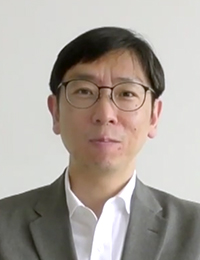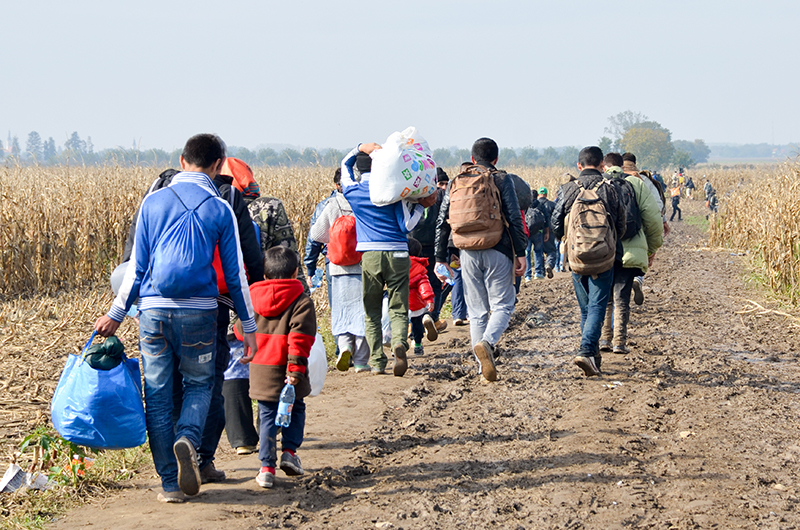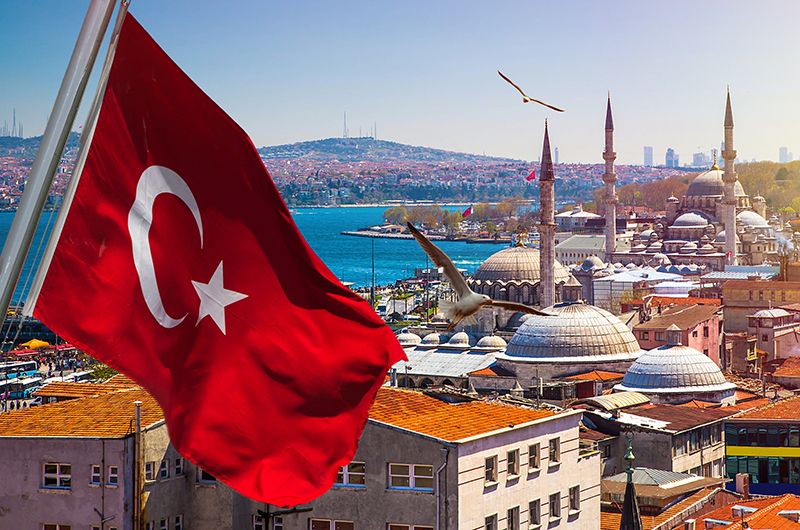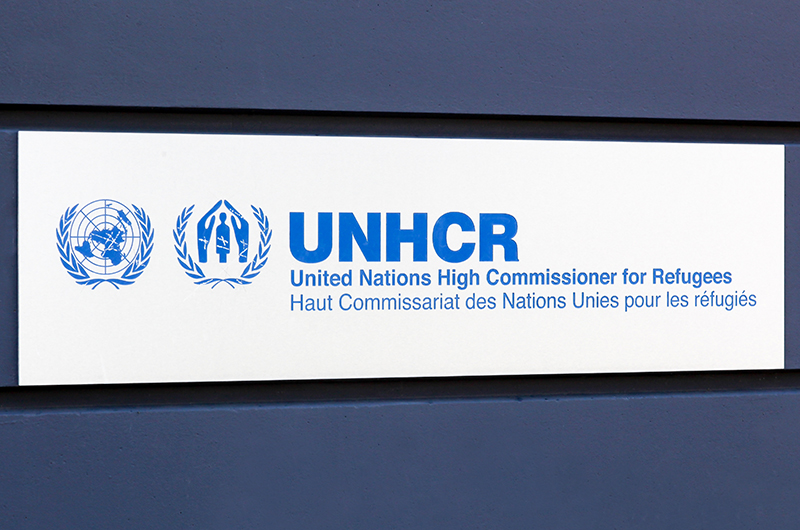
活動レポート


- 個の可能性を社会の価値へ -
![]()
![]()
![]()
![]()
![]()
![]()
![]()
![]()
![]()
![]()

帝京大学経済学部国際経済学科 講師 伊藤寛了
1998年、東京外国語大学外国語学部在学中にトルコ共和国アンカラ大学に留学。2001年東京外国語大学大学院へ進学し、2004年にはトルコ共和国ボアズィチ大学アタテュルク研究所に留学。2006年にはトルコ日本国大使館専門調査員となる。2009年、公益財団法人アジア福祉教育財団難民事業本部に入職。2010年東京外国語大学大学院地域文化研究科博士課程修了・博士(学術)後、2010年より東京外国語大学の非常勤講師を務めている。2019年に帝京大学経済学部に着任し、主としてトルコにおける難民政策とシリア難民の保護と支援をテーマに研究に取り組んでいる。

難民支援や難民保護において、常に根源的なテーマとなるのは「難民とはなにか」です。このテーマを語るには歴史を紐解く必要があります。まず、1945年に第二次世界大戦を防げなかったことから国際連合が発足します。続く1948年には、ナチスによるユダヤ人迫害をはじめ、戦争中に世界中で基本的人権がないがしろにされた反省を踏まえ「世界人権宣言」が採択されます。そして1951年「難民の地位に関する条約」が採択され、以後世界はここに記された定義に合致する人々を「難民」と認定しました。1967年にはさらに「難民の地位に関する議定書」が採択され、1951年の条約から地理的・時間的な制約が取り除かれて現在の「難民条約」が形作られます。こうして、何らかの理由で国境を越えて避難せざるを得ない人々を、領土をもった主権国家が保護する枠組みが整備されてきました。
一方、最終的な採択から半世紀が経過した現在では、世界のあり方も大きく変容しました。迫害によって国を逃れるケースだけでなく、さまざまな事情により移動を余儀なくされ保護を必要とする「準難民」といいうるカテゴリーの人々が増加しています。国内避難民や人道的配慮によって在留を認められた人々は伝統的な難民の定義には必ずしも当てはまらないものの、保護を必要とする準難民と考えられます。日本はよく難民受け入れが極端に少ないと批判されがちですが、難民条約上の定義を厳密に当てはめているからという指摘もあります。多様化する難民とどう向き合っていくのか、世界は新しい対応に迫られています。

私が難民の存在に触れたのは大学生の時です。交換留学制度と旧文部省の奨学金を活用してトルコのアンカラ大学に1年間留学し現地でイラクからのクルド難民の知己を得たり、旅行先のパキスタンでアフガン難民の方と知り合う機会を得ました。しかし難民問題と直接関わるようになったのは大学院生になってからです。難民申請を始めとするトルコ語通訳のアルバイトをしたことがきっかけです。大学院を修了する直前から、難民支援をしている団体に約10年間勤務し、2019年からは帝京大学において主としてトルコの難民問題を研究しています。
トルコは世界最多の難民受け入れ国であり、現代における難民研究の最も重要な国家のひとつです。特に10年前からは多数のシリア難民(※)を受け入れてきました。現時点において、トルコで生活するシリア難民は370万人以上、それ以外の国々から避難して来ている人々を合わせると約400万人になります。トルコの特徴は、難民条約に批准しつつも地理的制限を付し、難民の認定をヨーロッパの国々から逃れてきた人たちに限定しているところにあります。地理的制限の付与は条約上認められている権利ですが、行使している国は4カ国しかありません。トルコがヨーロッパとアジアをつなぐシルクロードの要衝であることや、周囲をイラクやシリアといった紛争国に囲まれているという地政学的な立場が大きく影響しています。アフガニスタンやパキスタン、あるいは中央アジアにも近いため、いろいろな国からの難民申請があった場合、定義に合致すれば受け入れなければならないという懸念が「制限」の背景にあると言えます。こうした中、2015年に欧州難民危機が生じた際には、EUがトルコに対して、難民を留め置いてもらう代わりに経済的な面などで支援を行うという合意を結んでいます。トルコの難民政策は国際的にも極めて複雑な状況下にあるのです。
当の難民を取り巻く生活状況はどうでしょうか。たとえばシリア人難民の多くは、都市部に散らばって長い人では10年近く一般生活者のように生活しており、トルコに適応したと考えている方が多くを占めます。公式には「一時保護下」にあるため選挙権などはないものの、就労や教育を受ける権利は認められています。一方、トルコ国民は、彼らは適応していないと考える人々が多いという調査結果があります。仕事が奪われていると考える方々もいます。データによれば、難民が一度母国を逃れてしまうと平均で20~25年くらい難民状態が続きます。トルコでも、母国を知らず難民として生まれ育つ子どもが増えています。このような実態に関する詳細な調査はまだ端緒に就いたばかりです。そこで私は今、トルコで生活する難民が実際にどのように現地に溶け込んでいるのかについての研究に着手しています。

難民問題の恒久的な解決は3つあると言われてきました。1つ目は本国への帰還です。ただ、それには根本的な問題の解決が必要です。難民をそもそも生じさせないような国家でなければ、帰還は困難です。2つ目は最初に避難した国=第一次庇護国での定住です。シリア難民で言えばトルコに定住して社会統合できれば解決だと考えるケースです。しかし、その国ごとに許容量があり条件や環境も違うため簡単ではありません。3つ目が第三国定住です。これは、UNHCR(国連難民高等弁務官事務所)が保護した難民を、日本やカナダ、オーストラリアなどの第三国に受け入れてもらう方法です。しかし相手国の政治的状況に左右されるため、なかなか受け入れてもらえないのが実情です。
そこで今、新しい動きが生まれています。難民であっても可能性を持つひとりの人間であることに変わりはありませんし、本国においては優秀な人材であったケースも珍しくありません。トルコではそうした人材を社会に有益な存在として帰化を認めるケースが出ていますし、シリア難民が自分で起業するケースもあります。その他の国で言えば、ヨルダンにおいてオックスフォード大学の協力を得て経済特区が策定され、シリア難民の方々の経済的な可能性を高める動きがスタートしています。また、リオデジャネイロオリンピックから難民選手団が登場しているように、スポーツやアートという領域にも、難民が活躍できる豊かな可能性があります。個人が持つ可能性にフォーカスし、それを社会に貢献しうる力にするという動きは、難民問題の解決方法として注目が集まっています。
今、帝京大学でも難民支援の取り組みが進んでいます。きっかけは、2019年に難民高等教育プログラム(RHEP)に参画したことでした。このプログラムは、日本に住む日本国籍を持たない難民の方が、奨学金を受けながら日本の大学で学べるようにサポートすることを目的としています。UNHCR駐日事務所と、UNHCRの活動を支える公式支援窓口である、特定非営利活動法人国連UNHCR協会が運営し、学力面のスクリーニングをした上で各大学へと推薦するプロセスとなっています。2021年度には、帝京大学に1人のシリア難民の学生を留学生として受け入れました。2022年度にはさらに帝京大学大学院でも受け入れる体制を整えています。学生が持つ可能性に出自は関係ありません。将来の選択肢も平等に存在しています。彼の存在が今後のシリア難民と日本社会との掛橋しになるかもしれないという意味においては、その価値は本当に大きなものです。

企業でも取り組みが盛んになっています。世界ではIKEAなどをはじめとし難民雇用に注力しているケースは増えています。日本ではユニクロが10年程前から難民雇用を進めています。中小企業でも難民雇用を行っているケースが増えつつあり、能力がある人に対する機会創出は難民問題解決における重要な取り組みです。社会は確実に変化しています。難民という存在の多様化に伴い、社会自体の柔軟性や許容力も上がっているのです。現在では、気候変動によって国土が消失することで生じる避難民の問題もまた喫緊の課題の一つになりつつあります。国家という枠組みを越え、地球の各国社会が難民問題に向き合う必然性は高まる一方です。難民問題には人権、国際政治、経済、教育、環境問題をはじめ、ますます多くの問題が内包されています。その解決にはSDGs的な叡智が常に求められます。難民問題に向き合い新しい解決の糸口を生み出していくことは、SDGsのアクションそのものであり、新しい社会価値の創造につながっていくと確信しています。